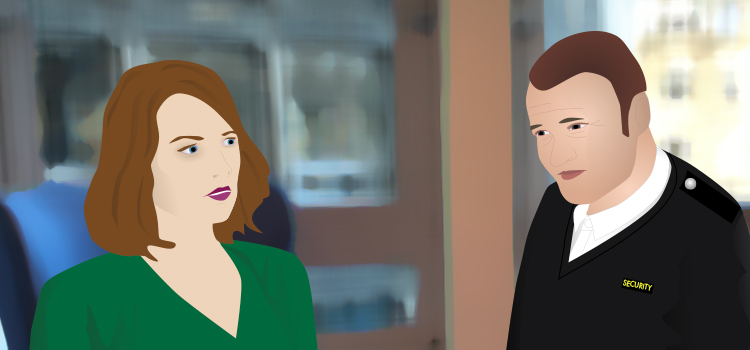Three days later after Edward’s OHCA, Craig’s manager invites him to come to her office for a debrief. Craig has been thinking a lot about what happened and welcomes the opportunity to talk to somebody about it.
Formal debriefing is a structured, voluntary discussion which aims to help individuals put what is, for them, an abnormal event, into perspective. Talking through the experience can help people clarify what happened and help them accept what has taken place. Not everybody will want to debrief and it should be an individual’s choice whether they participate or not.

Manager: I hear that you were called to an incident on Saturday, Craig. Can you tell me what happened?
Craig: A gentleman collapsed outside the store and I got called to attend. It’s the first time that I”ve been called to a cardiac arrest since I did my CPR training. I knew it was bound to happen sometime, but it still came like a bolt out of the blue.
Manager: What did you do?
Craig: I checked the gentleman who had collapsed and knew that he had had a cardiac arrest. I asked somebody to call an ambulance and get the public access defibrillator, then started CPR on him. I think I went on auto-pilot because I can”t really remember thinking about what to do.
Manager: How did you feel?
Craig: Terrified! It’s one thing learning CPR in a classroom but quite another when you”re doing it on a real person. I was scared that I wasn”t doing it properly and that it wouldn”t work. There was a crowd of people round us but nobody helped – it made me really nervous, trying to resuscitate him with all those people watching. I felt quite angry that all these people were standing around staring but nobody was doing anything. His wife was hysterical, which didn”t improve matters, and kept getting in the way. When he came round, I was relieved but still worried that he would collapse again. It seemed to take ages for the ambulance to arrive, although it wasn”t really very long. I”ve never been so glad to see anybody in my life!
Manager: How do you feel now?
Craig: I feel quite proud that I managed to provide CPR and bring the gentleman round. It actually makes me emotional, just thinking about it. I feel physically exhausted, too. Giving CPR is hard work! It was a strange feeling watching him being wheeled into the ambulance because I have no idea what has happened to him. I don”t suppose I”ll ever know.
Manager: It sounds like you did and amazing job, Craig. Well done. Looking back, would you have done anything differently?
Craig: I think that I could have been a be a bit more assertive with all the people hanging about watching. Surely somebody could have dealt with the wife and given her some support? I think my handover to the paramedic was a bit muddled, too. I was in such a state, I kept getting mixed up when I was giving him informtion. If I have to attend another cardiac arrest, I”m going to pay more attention to details such as the amount of time I had to do CPR for before they came round.
Manager: Is there anything I can do to support you?
Craig: No, thank you, just talking about it with you has been really helpful.
Pulse point
Increasing the number of lay individuals trained to give CPR will increase the number of these individuals who go on to perform CPR at an OHCA. Mathiesen et al (2016) claim that the experiences of lay responders when providing CPR and defibrillation has rarely been investigated. Their study explores the reactions and coping strategies of lay responders:


